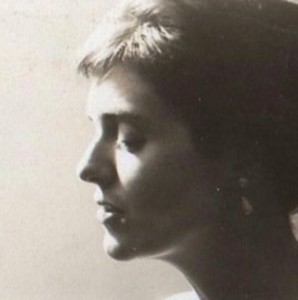 |
| Dorrie Glenn Woodson, 1956. Photograph by Harold Feinstein. |
I was encouraged to reach out to pianist Dorrie Glenn Woodson by her first husband, the photographer Harold Feinstein, and she and I met in person in New York before last Thanksgiving. Dorrie, seventy-six years old, had naturally gray hair that was long and free flowing, parted down the middle, and it framed her glasses in the style of Gloria Steinem. Among jazz musicians, no appearance is unconventional (except a rigid one), so I didn’t think about hers until we talked on the phone a few weeks later: When she described her parents, I couldn’t visualize them in her. She was born Dorothy Meese in 1934 on a small farm in rural Pennsylvania near the Mason-Dixon line; her father farmed fruits and vegetables and peddled them in nearby towns, and her deeply religious mother practiced the dawn-to-dusk farm traditions with dedication and care. The Dorrie I met was a long way from the farm.
Young Dorothy displayed a touch and dexterity on piano beyond her years; she won talent shows and admiration. The radio brought Ella Fitzgerald, Nat Cole, Duke Ellington, and other African American musicians into her home, in a nearly all-white region. She was transfixed. Her dreams of being a professional jazz pianist distilled and grew more potent. In 1952, after a talent show in Salisbury, Pennsylvania, eighteen-year-old Dorothy met an African American bassist and singer in the Herb Jeffries vein. He was from Frostburg, Maryland, and twenty years her senior. They began a long-term relationship, in secret due to the scandal of interracial romances at the time. She gained confidence in her ability to make impressions musically and generate opportunities for herself. Things seemed hopeful. But she’d grown up with no sex education—nobody uttered a word about it—and birth control was still illegal and often unreliable. It was double jeopardy.
Read More »
Fascinating account of a female jazz pianist who, while never making it big, has much to tell us about the travails of what it was like being a woman jazz musician--and more generally, a female artist. Or more generally still, a professional woman. (And as the situation, to some extent, still applies, this is not of mere historical interest.) I read a collection of pieces by Marian McPartland lately and she addressed the casual sexism facing female jazz players earlier in her career, but as this woman makes clear--at one point explicitly, but more, throughout--there's much more involved than guys not wanting to play with women. The whole thing is well worth reading.
No comments:
Post a Comment